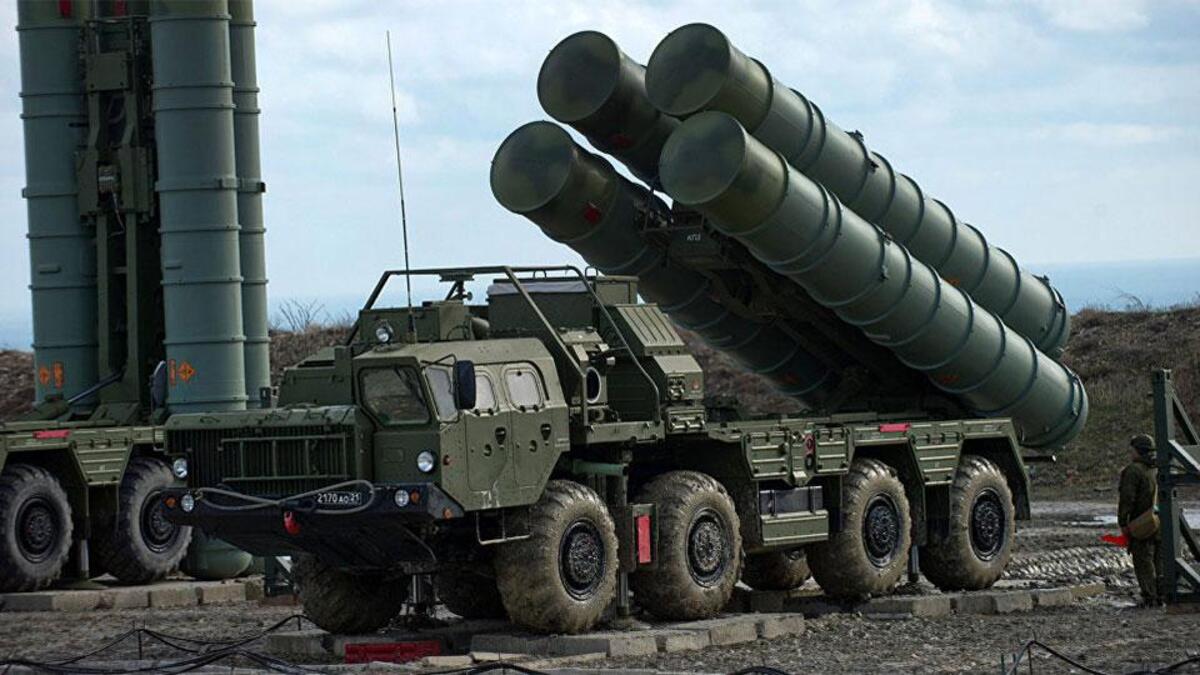On the sidelines of the keenly watched World Defense Show, where Russia is wooing customers for its cutting-edge equipment, state arms exporter Rosoboronexport chief refuted claims that there were some disruptions in delivery of the S-400 air defense systems to India.
CEO Alexander Mikheev was quoted saying that Rosoboronexport officially denies the information about the alleged disruption of the supply of S-400 air defense systems to India and that the contract is being executed within the terms agreed by the parties.
The CEO referred to previous reports in the Western media that contended that the ongoing Ukraine war and international sanctions had prevented Moscow from fulfilling its delivery commitments of the S-400 air defense system to India.
He noted that the Ukrainian media also wrote about the “disruption” of the supplies of the last remaining two S-400 divisions of India and spare parts for Russian-made combat aircraft.
“The contract is executed within the terms established by agreement of the parties,” Mikheev responded when RIA Novosti asked whether the reports of the S-400 deliveries to the Indian side being disrupted were accurate.
While the Russian official did not specifically refer to any particular report, an Indian parliamentary committee was informed last year by an IAF representative that a “major delivery” from Moscow “is not going to take place” as a result of the conflict in Ukraine.
After a flurry of rumors and allegations in local media, the admission—which was made public in a report by the lower house of parliament in India in March of last year—was thought to be the first official confirmation by Indian authorities over Russia’s inability to fulfill its export obligations.
The most significant ongoing delivery from Moscow to New Delhi is the S-400 Triumf air defense system units bought in 2018 for US$5.4 billion.
A few months later, Russian officials broke the silence and assured Russia would deliver the S-400 anti-aircraft systems to India within the agreed timeframe.
“The production of S-400 Triumf anti-aircraft missile systems is being carried out according to schedule,” said Dmitry Shugaev, head of Russia’s Federal Service for Military-Technical Cooperation.
Three S-400 Triumph air defense system formations had been shipped to India by October 2023. Additionally, the last two systems should be delivered by the end of this year, according to previous assertions made by Indian Air Force chief Air Chief Marshal Vivek Ram Chaudhari.
The Indian military reportedly conducted a thorough threat assessment and responded by strategically deploying three S-400 system units along the borders with China and Pakistan.
Indian officials and veterans have noted that with the ability to neutralize multiple targets at once, the S-400 air defense system is crucial for India’s security in the wake of the persistent threat on both its borders. India became the third foreign buyer of these systems after China and Turkey.
Additionally, a report published by SIPRI early last year indicated that Russia enjoyed the top spot in India’s defense imports even though the overall imports fell from 62% to 45%. The fall in these imports has been attributed to India’s gradual diversification and indigenization programs.
Analysts have predicted that India may try to decrease the amount of equipment it buys from foreign sources and diversify its imports to reduce reliance on Russian hardware.
The inability to deliver the promised hardware to its oldest buyer of military equipment doesn’t augur well for a country currently seeking more buyers at the World Defense Show in Riyadh, Saudi Arabia. The S-400, for one, has featured prominently in Russia’s pitch to potential customers, including states in the conflict-ridden Middle East.
Russia Is Selling S-400s To Middle East
The business aggressively markets its cutting-edge S-400 air defense system in the Middle East. Rosoboronexport CEO Alexander Mikheyev recently stressed the S-400 Triumph air defense system’s “superiority” over rival Western systems.
“The S-400 Triumph is the best long-range air defense system in the world today. Rosoboronexport is constantly working to promote this anti-aircraft missile system to partners from the Middle East, who are showing increased interest in protecting their territories and important infrastructure facilities from the air threat,” he said.
Making a pitch for its S-400 air defense systems to the Middle East, Russian officials have noted that several countries want to protect their sovereignty and security amid an increasingly volatile security environment.

Mikheyev contrasted the claimed inadequacies of Western air defense systems with the S-400 Triumph’s demonstrated capacity to destroy aerodynamic and ballistic missiles in actual combat scenarios.
Mikheyev emphasized the capabilities of the S-400 Triumph, calling it the world’s best long-range air defense system. It can engage tactical ballistic targets, such as cruise missiles and ballistic missile warheads, at up to 60 km away, as well as aerodynamic targets up to 400 kilometers away.
The system’s guided antiaircraft missiles, including the 48N6E3, can target aerodynamic and ballistic threats at different altitudes, while its radar can identify air targets up to 600 kilometers away.
“The experience of the special military operation demonstrated that modern western air defense systems miss ballistic targets in practically 100% of cases,” according to Mikheyev.
The Russian state arms exporter is building on the combat success of its S-400 air defense system in Ukraine, despite multiple batteries of the air defense system allegedly struck by Kyiv’s forces. However, the doubts over Russian production and supply chains could pour cold water on Russia’s offer of the S-400 air defense system to its most promising market.
- Contact the author at sakshi.tiwari9555 (at) gmail.com
- Follow EurAsian Times on Google News




